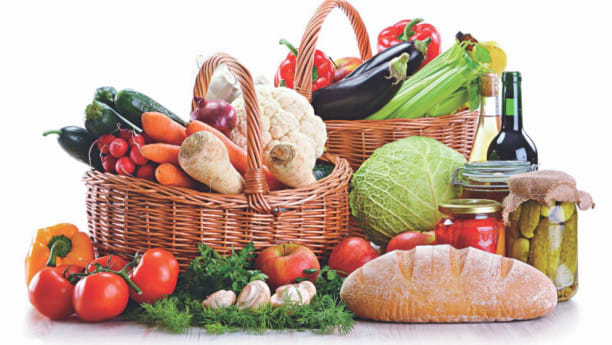Tips for a healthy diet this New Year

Whatever your New Year's resolution, a healthy and balanced diet will provide many benefits into 2019 and beyond. What we eat and drink can affect our body's ability to fight infections, as well as how likely we are to develop health problems later in life, including obesity, heart disease, diabetes and different types of cancer.
Eat a variety of food
Our bodies are incredibly complex, and (with the exception of breast milk for babies) no single food contains all the nutrients we need for them to work at their best. Our diets must therefore contain a wide variety of fresh and nutritious foods to keep us going strong. Some tips to ensure a balanced diet:
♦ In your daily diet, aim to eat a mix of staple foods such as wheat , rice and potatoes with legumes like lentils and beans, plenty of fresh fruit and vegetables, and foods from animal sources (e.g. meat, fish, eggs and milk).
♦ Choose wholegrain foods like unprocessed oats, wheat and brown rice when you can; they are rich in valuable fibre and can help you feel full for longer.
♦ For snacks, choose raw vegetables, unsalted nuts and fresh fruit, rather than foods that are high in sugars, fats or salt.
Cut back on salt
Too much salt can raise blood pressure, which is a leading risk factor for heart disease and stroke. Most people around the world eat too much salt: on average, we consume double the World Health Organisation (WHO) recommended limit of 5 grams (equivalent to a teaspoon) a day. Some tips to reduce your salt intake:
♦ When cooking and preparing foods, use salt sparingly and reduce use of salty sauces and condiments,
♦ Avoid snacks that are high in salt, and try and choose fresh healthy snacks over processed foods.
♦ Remove salt and salty condiments from the table and try and avoid adding them out of habit; our tastebuds can quickly adjust and once they do, you are likely to enjoy food with less salt, but more flavour!
Reduce use of certain fats and oil
We all need some fat in our diet, but eating too much – especially the wrong kinds - increases risks of obesity, heart disease and stroke. Industrially-produced trans fats are the most hazardous for health. A diet high in this kind of fat has been found to raise risk of heart disease by nearly 30%. Some tips to reduce fat consumption:
♦ Replace butter and ghee with healthier oils such as soybean, canola (rapeseed), corn and sunflower.
♦ Choose white meat like poultry and fish which are generally lower in fats than red meat, trim meat of visible fat and limit the consumption of processed meats.
♦ Try steaming or boiling instead of frying food.
♦ Check labels and always avoid all processed, fast and fried foods that contain industrially-produced trans fat. It is often found in margarine and ghee, as well as pre-packaged snacks, fast, baked and fried foods.
Limit sugar intake
Too much sugar increases the risk of unhealthy weight gain and obesity, which can lead to serious, chronic health problems. As with salt, it is important to take note of the amount of "hidden" sugars that can be in processed food and drinks. For example, a single can of soda can contain up to 10 teaspoons of added sugar! Some tips to reduce sugar intake:
♦ Limit intake of sweets and sugary drinks such as fizzy drinks, fruit juices and juice drinks, liquid and powder concentrates, flavoured water, energy and sports drinks, ready-to-drink tea and coffee and flavoured milk drinks.
♦ Avoid giving sugary foods to children. Salt and sugars should not be added to complementary foods give to children under 2 years of age, and should be limited beyond that age.
Source: World Health Organisation



 For all latest news, follow The Daily Star's Google News channel.
For all latest news, follow The Daily Star's Google News channel.
Comments